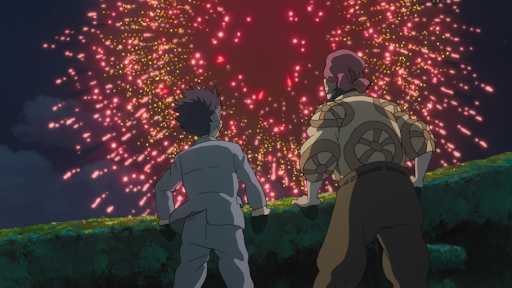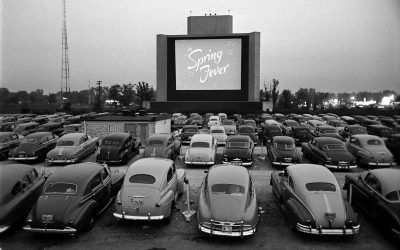Source: Variety
There are few international film-going events quite as revered as the Cannes Film Festival, which normally takes place in the French city of Cannes around the month of May, and there are few awards given out at Cannes that are as highly sought after as the Palme d’Or. Translating to the Golden Palm in English, the Palme d’Or is more often than not awarded to a single film that is selected for in-competition exhibition at each annual festival; there will usually be several feature films vying for the prize, but under normal circumstances, only one can claim it at a time. However, there is also the less common, but nonetheless immensely desirable Honorary Palme d’Or, which isn’t awarded to a single film so much as it is to a person (or in this most recent case, a group) that has had some significant impact on the world of cinema. First given to Swedish filmmaker Ingmar Bergman in 1997, the Honorary Palme d’Or has not been handed out each year at Cannes, but those who are fortunate enough to receive are generally regarded as some of the world’s most esteemed figures associated with the cinematic medium. These include French actress Jeanne Moreau, Italian filmmaker Bernardo Bertolucci, and big-name Hollywood stars like Clint Eastwood and Tom Cruise. At this most recent Cannes Film Festival, for the first time since the award’s inception, three Honorary Palme d’Or have been given out: one to Academy Award winning actress Meryl Streep, another to “Star Wars” creator George Lucas, and the last given not to a single filmmaker, but an entire studio that has produced some of the most universally acclaimed features of the past few decades. Its name: Studio Ghibli.
To almost everyone living in its native Japan, as well as countless others living elsewhere across the globe, Studio Ghibli needs no introduction. Founded in 1985 by Hayao Miyazaki, Toshio Suzuki, Isao Takahata, and Yasuyoshi Tokuma (all of whom collaborated on “Nausicaa of the Valley of the Wind”, directed by Miyazaki and released a year prior to unprecedented critical and commercial success), the studio has maintained a shockingly strong track record throughout its nearly forty years of existence, with many of its features being among the highest-grossing releases of all time in Japan. On top of that, its popularity appears to be just as high in various different international markets, with the likes of “My Neighbor Totoro” and “Spirited Away” being frequently regarded as some of the greatest films ever made (with those two previously mentioned films even making their way onto Sight and Sound’s most recent Greatest Films of All Time list). Such overwhelming admiration has only grown more apparent with the release of Miyazaki’s latest film “The Boy and the Heron”, which not only became the first Japanese animated feature to top the North American box office upon its release in December of last year, but also earned the Academy Award for Best Animated Feature, making it one of only two non-English language films to do so (the other being the aforementioned “Spirited Away”, which earned the exact same prize after its North American release in 2002).
Given such a reputation, it seems fitting that if the Cannes Film Festival were to give out a Palme d’Or to a collective of multiple people for the first time, it’d be a studio as almost universally cherished as Studio Ghibli. That being said, if one were to ask Miyazaki how he feels about such recognition, he’d probably be rather hesitant to take full credit for the success of his studio and its productions, or at least that’s what Suzuki, his long-time associate and producer, claims. “He knows a large group of people have helped make each one of his films,” Suzuki states with the assistance of a Japanese-English translator. “Miyazaki is typically Japanese, which is to say he is very shy. When he learned this award was for our studio as a group, he was very happy with that. It takes a long time to make his movies and many people help make the movies.”
Miyazaki and Suzuki may be rather nonchalant about Ghibli receiving such a prestigious prize, but when it comes to those giving it out, there doesn’t seem to be anything less than unapologetic enthusiasm, at least not from Irish Knoblach and Thierry Fremaux, the president and general delegate of Cannes respectively, who released a statement prior to awarding Ghibli expressing the passion and appreciation they and the rest of the festival have for the studio that brought “Grave of the Fireflies” and “Princess Mononoke” into the world. “For the first time in our history, it’s not a person but an institution that we have chosen to celebrate,” the statement reads. “Like all the icons of the seventh art, these characters populate our imaginations with prolific, colorful universes and sensitive, engaging narrations. With Ghibli, Japanese animation stands as one of the great adventures of cinephilia, between tradition and modernity.”
At first though, nobody working at Studio Ghibli could’ve ever predicted how much the world would come to wholeheartedly embrace their films, as their main priority at the time was simply making sure that they could keep making one feature after another and remain successful enough to do so, never once considering the fact that they were making some of the greatest animated masterpieces of all time in the process. “We were too busy,” Suzuki half-jokingly remarks. “We were making the first film and we thought maybe if we can make this film and it succeeds then we can make the next film. But we knew that if we fail and the movie is bad or if no one likes it then that was the end of us. So we were just focusing on that first film.”
That placement of their focus, fortunately, has paid off tremendously. On top of all that Miyazaki has created, the likes of “The Cat Returns” director Hiroyuki Morita and Hiromasa Yonebayashi, who directed “The Secret World of Arrietty” and the Academy Award nominated “When Marnie Was There”, have also built respectable reputations for themselves while working for the studio. Regardless of who has directed one of its many widely adored cinematic releases though, there’s no denying that Studio Ghibli has set a standard for filmmaking that few other individuals and studios have managed to come anywhere close to reaching. Such an astonishing achievement does not deserve to go without some recognition, and many would agree that the Honorary Palme d’Or given to it at the most recent Cannes Film Festival is exactly what it deserves most.




